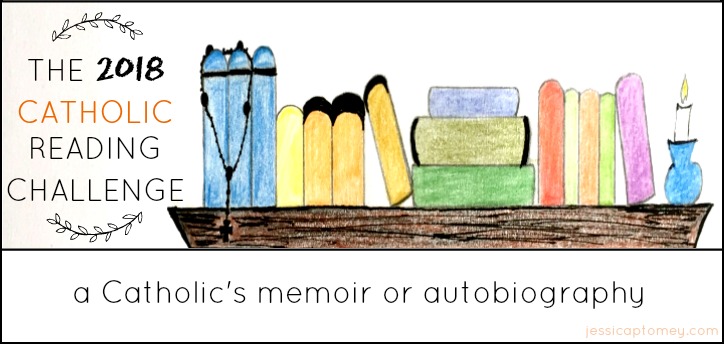We are two thirds of our way through the year already! How is your 2018 Catholic Reading Challenge going? I am continuing to share what I am reading for the challenge with you. This pick paired wonderfully with my pick for a biography of a prominent Catholic…

Category: “a Catholic’s memoir or autobiography”
My Pick: The Long Loneliness by Dorothy Day
I wanted to read two books about Dorothy Day this year, because she was someone about whom I previously knew very little. Toward the beginning of the year I read Jim Forest’s biography of Day, Love is the Measure. You can read my take on that book here. I finally got around to Day’s own words about her life and work. It is really interesting to read a biography and autobiography of someone in close succession. There was much repeated history of her life, but Forest’s account was certainly a more detailed history. Day doesn’t overshare when it comes to places that her story intersects with the stories of others, that are not hers to tell, as she puts it.
Her autobiography focuses on what drew her to the Catholic Church and what drew her to the work of her life; and most of the book is really an account of what that work was like and what relationships animated it and inspired it. One person who greatly influenced Dorothy’s perspective and worked along side of her was Peter Maurin. She spends much of the last third of the book recounting how his philosophies helped form her own and the direction of the The Catholic Worker, the paper she edited.
One thing I quite respect about Day is that she is a figure who can’t be put in a box. She is an enigma. It would be hard for any group — except Catholics — to “claim” her. And then, she is unlike most Catholics I know. She is unlike most people, I would say. She really was someone who lived a radical expression of her faith, and all of her work centered around acts of charity. Since before her conversion, she was drawn to those in poverty; she felt one with them. There is an element of Christ’s gospel message about the “poor in spirit” that Day seemed to be especially endowed with the grace to identify and live out authentically. Continue reading →


